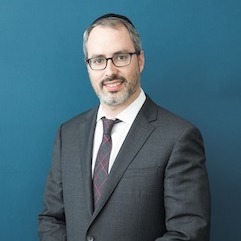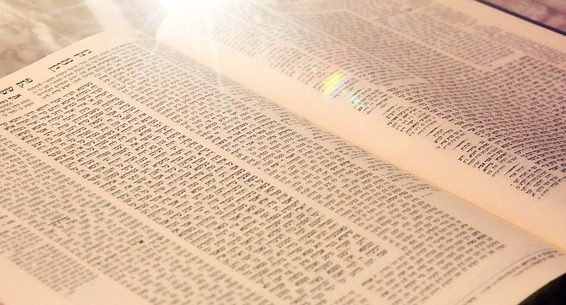This post was written on the yahrtzeit of my grandfather Matisyahu ben Chaim Rafael and is dedicated to his memory. May his neshama have an aliyah
There is a widespread custom to stay up all night on Shavous and study Torah. There is an interesting history to this Minhag. The Medrash tells us that when the Torah was given, the Jewish Nation as a whole slept in, and had to be awoken by G-d to receive the Torah. In reparation, we stay up all night and study Torah. (Magen Avrohom).
The Arizal writes that one who does not sleep at all, and spends the entire night immersed in Torah study, is promised that he will live out the year without harm. Some are careful not to speak at all (aside from words of Torah) until after davening.
We are faced with an interesting dilemma when it comes to making the morning blessings.
Netilas Yadayim – there is a dispute as to why we make a blessing upon washing our hands in the morning:
Either because we have slept and therefore may have touched somewhere that would require washing before davening (Rosh),
Or because we are newly recreated beings upon awakening in the morning after sleep, and therefore say all the morning blessings, and the process that was instituted was to begin with washing our hands and making a blessing much as the Kohen would do in the Beis Hamikdash before beginning to go about his duties. (Rashba)
Practically we would need both reasons to require making a Bracha. Therefore if one is awake all night, the Rema rules that he should wash his hands without a Bracha. The Mishna Berura suggests that one relieves oneself immediately after Amud Hashachar, at which time he can make the blessing according to everybody, The Rosh because relieving oneself requires washing before davening, and the Rashba because he is a newly recreated person.
Elokai Neshamah and Hamavir Shaina – These are blessings that are said to thank Hashem for ‘waking us up’ something not apropos for one who hasn’t slept. The recommendation of the Poskim is to hear these two Brachos from someone who has slept. The minimum required amount of sleep is ’60 breaths’. There are various opinions as to what this means ranging from about three minutes to about three hours. The commonly accepted view seems to be ½ an hour.
Tzitzis – Someone who wore their tzitzis all night does not make a new Bracha in the morning. The proper thing to do is to either put on, or be yotze with someone who puts on, a Tallis Gadol, and make the appropriate blessing on that.
Birchas HaTorah – There is a dispute among the Poskim if Birchas HaTorah should be recited by one who was awake all night. The Mishna Berura rules that Safek Berachos Lehakel and they should not be recited, rather he suggests one try to be yotze with someone who had slept, or have in mind to absolve himself with Ahavah Rabba (or Olam).
The Mishna Berura quotes Rabbi Akiva Eiger that if one slept during the preceding day (in our case Erev Shavous) then according to all opinions he can say Birchas HaTorah.
There is a custom quoted by the Shelah to go to the Mikvah immediately after Alos HaShachar before Davening.
Regarding Maariv on the first night of Shavous, In order that Sefira should be Temimos or complete, we don’t start Maariv until after Tzeis Hakochavim (certain nightfall). For the same reason, some suggest that even women who usually light candles before Yom Tov begins, should wait to light until after that time. (Luach Eretz Yisroel).


I think Arizals statement must be qualified in two ways: 1. If you learn the entire night without wasting any time at all 2. If you don’t endanger yourself, through stupidity, that year.
Is staying up the second night is real thing, is there a source for this custom?
The source for the second night seems to be the Shelah in Mesechta Shavous
Not enough has been written in sefarim about NOT staying up on Shavuot night if you wont be able to daven properly.
If on Purim, where getting drunk is a mitzva, one should not do so if one will not be able to bentch/daven maariv later on — how much more so should one forgo the *custom* of staying up all night if one wont be able to daven properly.
It is certinly a hallowed and revered custom, but context is everything.
Ari Enkin
Re; Ari’s comment about staying up and davening properly – I think this is something that is definitely for the youngsters. If one can pull off all-nighters before taking a morning test, handling davening should not be an issue. I do think that people hit an age where that would just not be doable. I think my age limit was 25.
btw: if one is irritable after staying up, than I would think that would not qualify as being able to daven properly.
I have a question about “staying up all night”: If one takes a nap between nightfall and midnight (Tzeitz Cochavim and Chatzos Halailah) and then studies from Chatzos until daybreak (Alos Hashachar), does that count as “all night” from the point of view of the Arizal?
Note
Hi,
What about areas (e.g. England) where the stars don’t emerge until 11PM?
Jake
I mean, how to fulfill “temimos?”
Thanks
Dear Zvi,
I really enjoyed reading your article. If I may comment:- it would appear that the minhag of staying up all night on Shavuos is based on an unfortunate misunderstanding of the parsha of Matan Torah in Yisro. In 19:17 it says in translation “And Moshe took out the People to meet G-d….” From this we deduce that hashem was waiting for us. The Arizal? interprets this to mean that haas vshalom Um Yisroel – the People of Israel – slept in late that morning of the giving of the Torah. In contradistinction Rashi says on the pasuk that it is teaching us that Hashem went out to greet us like the groom goes out to meet the bride. In otherwords Hashem was showing his deep love for us by coming out early to meet us, not that we slept in. Rashi supports this by quoting from parshas Zos Habracha were in praise of Hashem and us Moshe says “vyomar Hashem Misinai ba” and Hashem said from Sinai he came, which Rashi explains that Hashem went out to greet bnei Yisrael like a Bride meets his groom.
About your advise for Elokai Neshamah and Hamavir Shaina that you should hear the bracha from someone who slept:- I don’t think this is sound advice because if you were indeed not obligated in these brachos until you slept, when you wake up you are! The way out of this dilemma is to not be yotsei the brachos till you yourself go to sleep and become unequivocally obligated.
Warmest regards,
Yitzchok